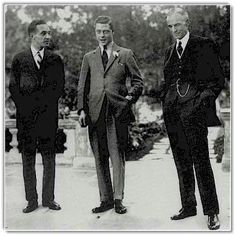In the early part of the 20th century, technocracy and technocratic thinking, while relatively new to the American experience, were the order of the day. A captain of industry like Henry Ford should have known better, but as the following article from The Literary Digest (“Henry Ford Dooms Our Great Cities,” November 15, 1924) indicates, the man who revolutionized American society fell victim to it. You can read it here or follow the link to the original publication.
HENRY FORD DOOMS OUR GREAT CITIES
THAT THE MODERN CITY IS DOOMED is the rather startling statement of Henry Ford, head of one of the biggest industrial enterprises in the United States.
According to Drew Pearson, writing in Automotive Industries (New York), Mr. Ford declares that in the America of the future there will be no mammoth collections of skyscrapers and teeming tenements in which millions of people are cooped within a few square miles of territory. Instead, the country will be traversed by chains of small towns clustering around individual factories and inhabited by people who will divide their time between factory and farm. The picture of the America of to-morrow which Henry Ford paints, says Mr. Pearson, is a particularly rosy one. In his opinion, the passing of the big city will mean less crime, less poverty, less wealth, less unrest, and less of that fierce, nervous strain under which myriads of our city dwellers live to-day.
Something like this, agrees the Philadelphia Record, will have to be brought about in order to correct the growing monstrosity of our big cities. There are some 400 of these in the world whose populations exceed 100,000, says the Washington Post. In Mr. Ford’s opinion:
“The overhead expense of living in such places is becoming unbearable. The cost of maintaining interest on debts, of keeping up water supply, sewerage and sanitary systems, the cost of traffic control and of policing great masses of people is so great as to offset the benefits of the city. The cities are getting top-heavy and are about doomed.
“Industry in the future is going to be organized on a big scale—somewhat along the lines of the vertical trust. Competition, however, will force big industry to move its various parts to the country where labor is steady and overhead costs low.
“At the same time, it is nonsense to say that because the cities are overcrowded everybody ought to move to the farm. There must be a balance between the two. The farm has its dull season, when the farmer can come into the factory, and the factory has its dull season when the workmen can get out on the land to help produce food.”
“As Mr. Ford has already taken steps to back up his ideas with practise, they take on a practical aspect,” believes the New York Sun. As the Grand Rapids Herald sees the present situation:
“There is no questioning any of the liabilities which Mr. Ford charges up against the city’s account. And there are more, too. Modern civilization is outgrowing cities. For twenty years we have had a steadily increasing movement of rural residents to the cities. The time is coming, and that soon, when this movement will be turned about.”
On the other hand, maintains the Chicago Journal of Commerce, “there will be no immediate alarm in the great cities of the country because Henry Ford has declared that the cost of cities has become so great that they are about to meet the fate of all human enterprises which get top-heavy. Cities come and stay. The Ford plan simply means more cities.” Besides, notes the Boston Post:
“Mr. Ford seems to think that the farms can be so near the factories that the men who work in the former can also work in the latter on ‘off time.’ But when have the farmers any off time? For the most part they are at more or less hard labor every hour of the day, beginning at four in the morning and end at seven at night. It is only in the winter, if even then, that they can give any time to manufactures. The two kinds of labor are totally incongruous. To succeed at one must mean to neglect the other.”
“Mr. Ford may be right regarding the industrial side of the question,” admits the Jersey City Journal, “but the urban population has shown no marked inclination to move en masse out into the suburbs. As a matter of fact, the cities are more than holding their own in the matter of population.”
It would be far better, thinks the New York Tribune, so far as New York is concerned, if half the great manufacturing establishments in the metropolis could be moved from ten to fifty miles out of the city “but in the present state of society the plan is impossible.” One reason for this, explains the Brooklyn Times, is that “the automobile gives the city dweller the opportunity of enjoying the delights of the country – and at the same time utilizing the conveniences and advantages of the city.”
That the traffic question, at least, of our large cities can be solved is the belief of Harvey Wiley Corbett, architect. Writing in The American City (New York) this authority suggests different street levels for pedestrians, automobiles, and street-cars and railway trains, with the latter underground. In his opinion, the outlook is not as dark as Mr. Ford would have us believe.

Unfortunately the technocratic spirit is still around, as the “experts” continually try to scare us with stories of doom and gloom caused by “global warming” or rocks falling from the sky.

